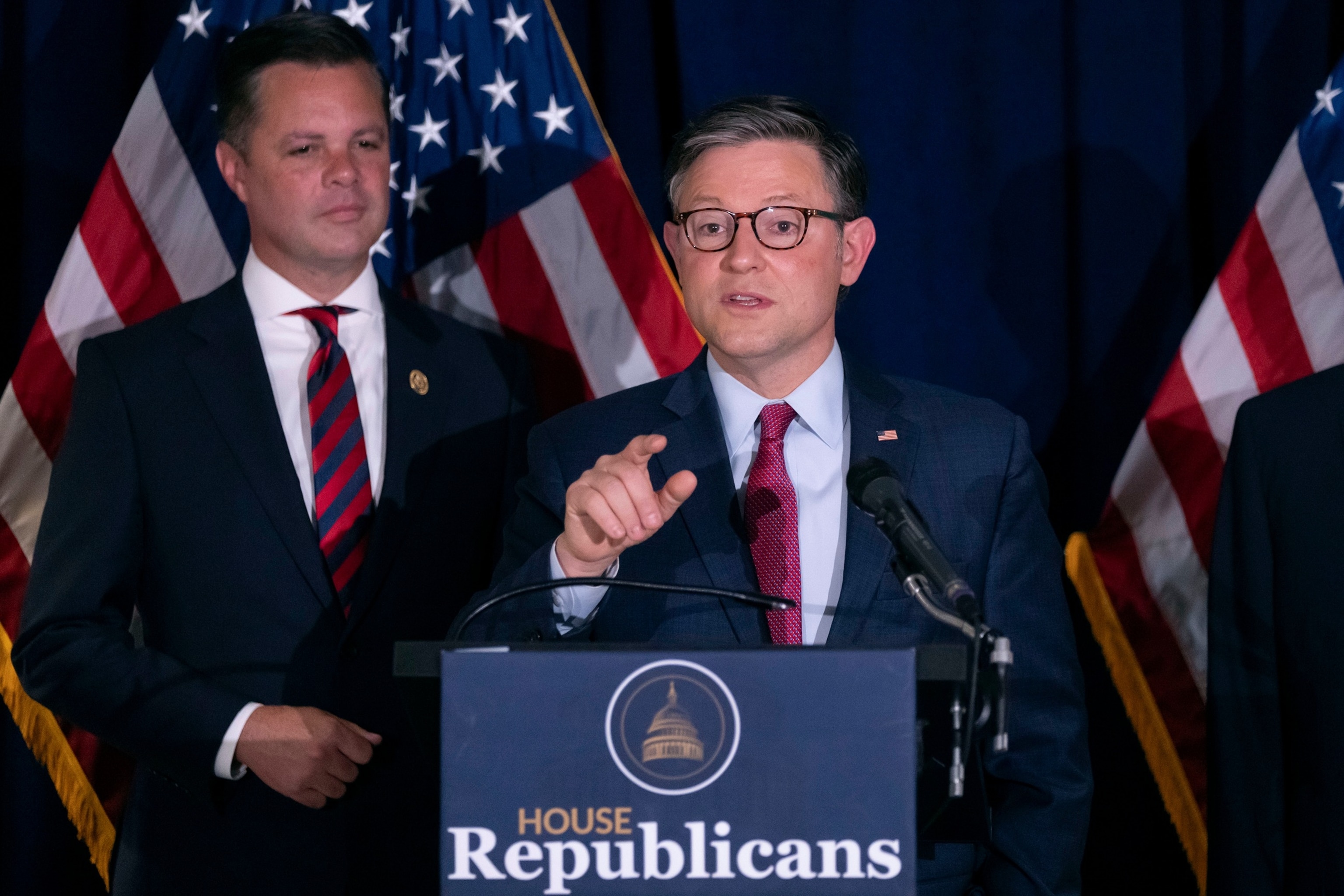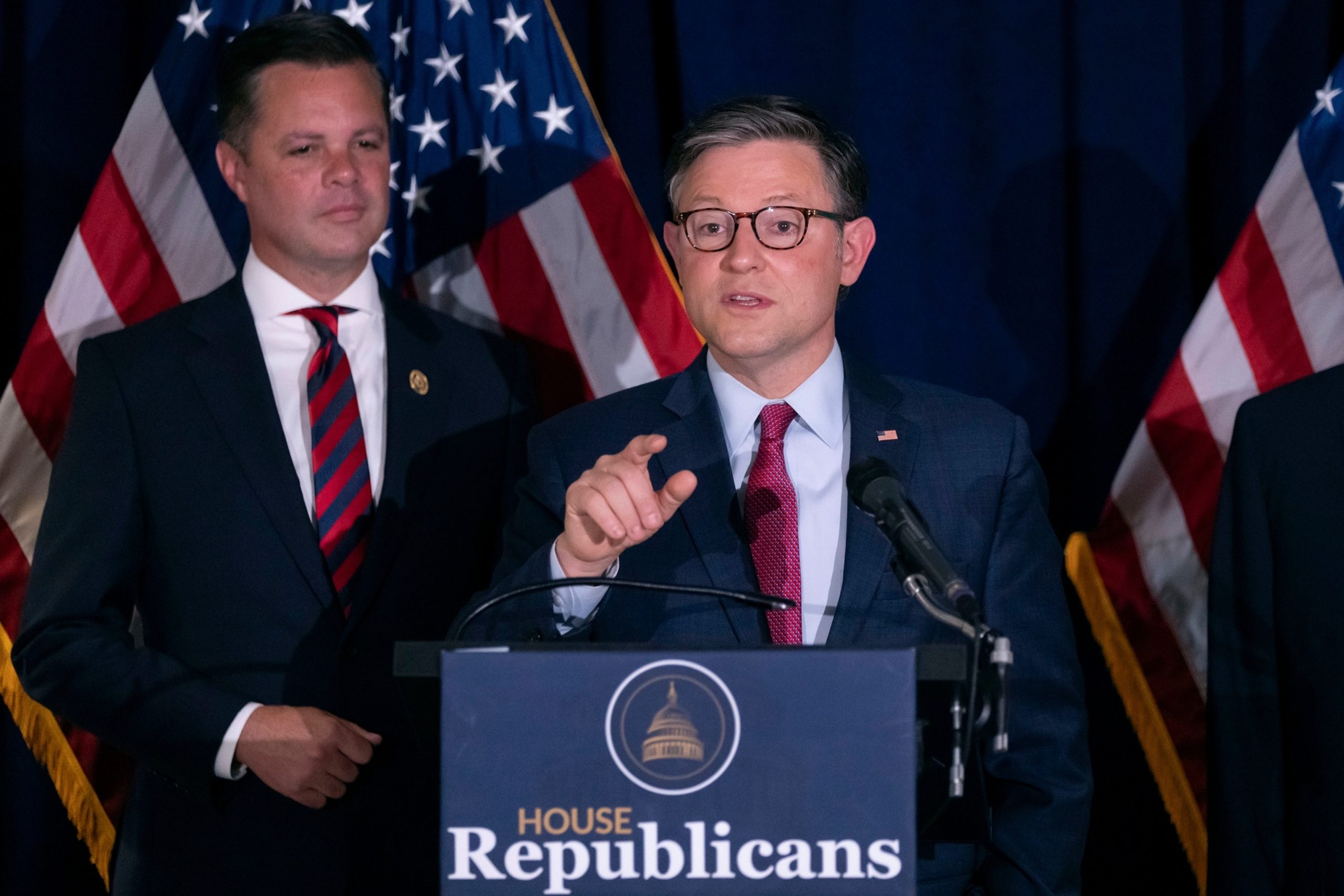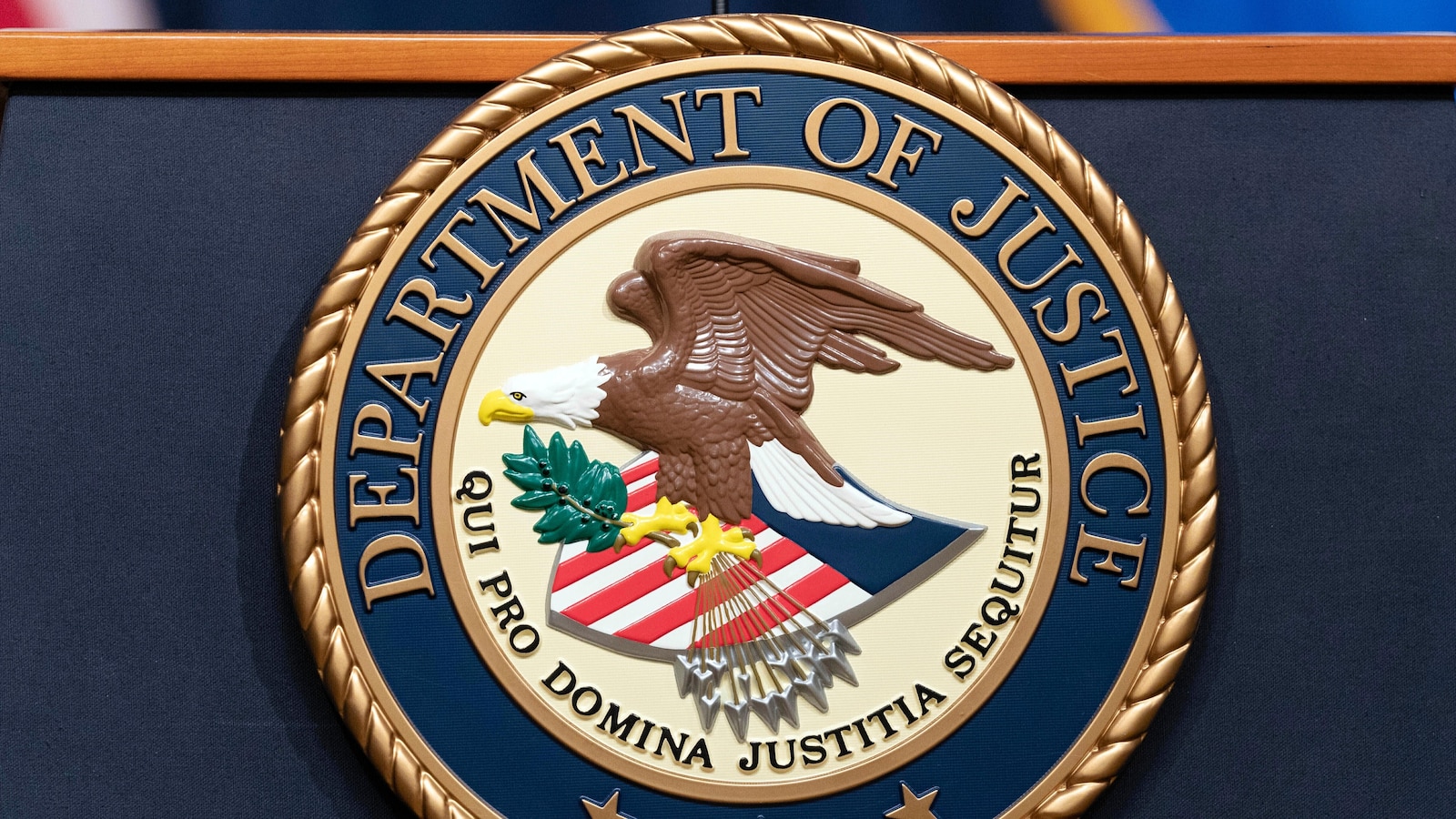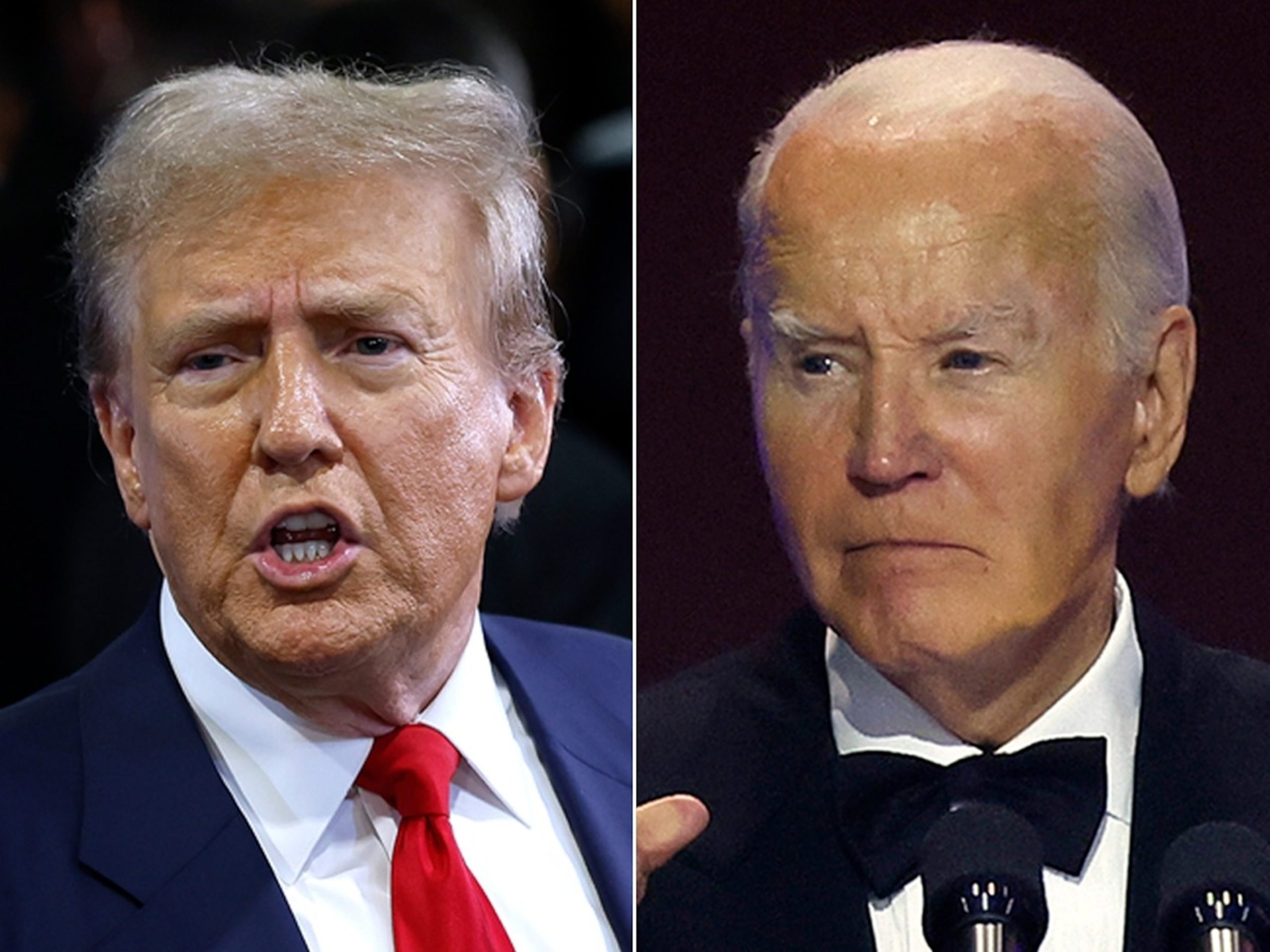House Speaker Mike Johnson on Wednesday will forge ahead with a vote on his government funding plan despite it being expected to fail.
“We’ll see what happens with the bill,” Johnson told reporters. “The quarterback’s calling the play. We’re going to run the play. I’m very confident.”
Johnson’s measure would fund the government for six months but also includes the SAVE Act, a bill backed by GOP leadership and former President Donald Trump that would require individuals to provide proof of U.S. citizenship to vote. Democrats have said the legislation is a non-starter, noting it is already illegal for non-citizens to cast a ballot in federal elections.
Johnson was set to try to pass the funding plan last week but pulled it from the floor because he didn’t have the votes.
Some Republicans in his caucus oppose the measure because they say it would contribute to the deficit while defense hawks say they won’t vote for it because the six-month extension would effect the Department of Defense’s readiness.
Still, he’s dug in on the measure and is not talking about what the next steps should be if it fails. Congress needs to pass a funding measure before Oct. 1 to avoid a shutdown.
Trump has openly called for Republicans to let the government close if they don’t pass the SAVE Act. He wrote on his social media platform that if they “don’t get absolute assurances on Election Security, THEY SHOULD, IN NO WAY, SHAPE, OR FORM, GO FORWARD WITH A CONTINUING RESOLUTION ON THE BUDGET.”
Asked about Trump’s comments that Republicans should let funding lapse in such a scenario, Johnson responded “No, look, President Trump and I have talked a lot about this. We talked a lot about it with our colleagues who are building consensus on the plan. We all believe that election security is of preeminent importance right now.”
Trump again, just before the vote on Wednesday, called for a government shutdown if “every ounce” of the SAVE Act isn’t attached to a funding measure.

Speaker of the House Mike Johnson, accompanied by Rep. Zachary Nunn, left, speaks at a news conference at the Republican National Committee headquarters on Capitol Hill in Washington, Sept. 18, 2024.
Ben Curtis/AP
Senate Minority Leader Mitch McConnell, the chamber’s top Republican, said it would be “politically beyond stupid” to allow a shutdown to take place with just seven weeks until Election Day.
“I think we first have to wait and see what the House sends us. My only observation about this whole discussion is the one thing you cannot have is a government shutdown,” McConnell said. “It’d be politically beyond stupid for us to do that right before the election, because certainly we’d get the blame.”
Democrats have urged Johnson to drop his funding plan and bring a clean short-term measure to the floor to keep the government open.
House Minority Leader Hakeem Jeffries told reporters last week that the only path forward is a bipartisan agreement that does not include “extreme” measures, such as the SAVE Act.
Senate Majority Leader Chuck Schumer on Monday also urged the House to pass a clean bill.
“In order to avoid a shutdown, the worst thing our colleagues in the House can do right now is waste time on proposals that don’t have broad bipartisan support,” Schumer said.
ABC News’ Allison Pecorin, Mariam Khan and Alexandra Hutzler contributed to this report.
As the deadline for a government shutdown looms, all eyes are on Speaker Johnson’s funding plan and the likelihood of its success. With tensions running high in Congress and the threat of a shutdown becoming more real by the day, many are questioning whether Speaker Johnson’s plan will be able to pass and prevent a government shutdown.
Speaker Johnson’s funding plan is ambitious, aiming to secure funding for key government agencies and programs while also addressing pressing issues such as immigration reform and border security. However, with a divided Congress and partisan gridlock at an all-time high, the chances of the plan passing seem slim.
One of the main obstacles facing Speaker Johnson’s funding plan is the lack of bipartisan support. Democrats and Republicans have been at odds over key issues such as funding for a border wall and protections for DACA recipients, making it difficult for a compromise to be reached. Without bipartisan support, Speaker Johnson’s plan may struggle to gain enough votes to pass in both the House and Senate.
Another factor that could contribute to the failure of Speaker Johnson’s funding plan is the looming deadline for a government shutdown. As the deadline approaches, lawmakers may become more entrenched in their positions and less willing to compromise, making it even harder for Speaker Johnson to garner the necessary support for his plan.
Additionally, the current political climate is volatile, with tensions between the two parties at an all-time high. This could further complicate efforts to pass Speaker Johnson’s funding plan and increase the likelihood of a government shutdown.
In conclusion, while Speaker Johnson’s funding plan may have noble intentions, the likelihood of its success as the shutdown deadline nears seems uncertain. With partisan divisions, lack of bipartisan support, and a volatile political climate all working against it, Speaker Johnson’s plan may face an uphill battle in Congress. Only time will tell whether a compromise can be reached and a government shutdown can be averted.



